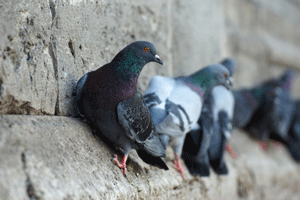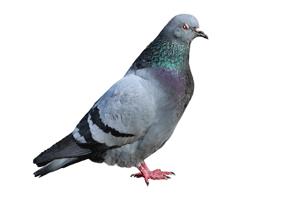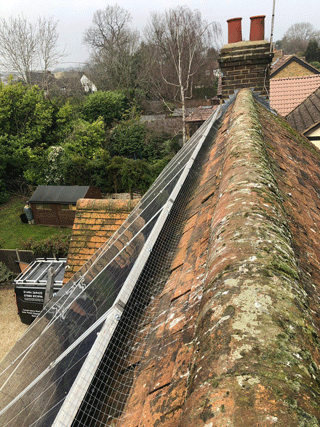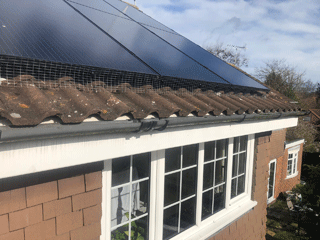Pigeon Control

We undertake work with two very different species of pigeon, the feral pigeon and the wood pigeon. Both of these can be classed as a pest species, although under very different circumstances.
Although wood pigeon can be a serious agricultural pest, causing extensive damage to farmer’s crops, they are unlikely to represent a problem in urban areas.
The Feral or town pigeon as it is sometimes referred to, can represent a serious problem in and around homes and commercial premises. Although some people take delight in seeing these birds and feeding them, they do represent a serious problem once a population becomes established.
Bird droppings, or to give it its proper name guano, carries various pathogens which pose a serious public health risk. In serious cases this may require specialist cleaning to remove it.

Over time a build-up of guano will result in structural damage to buildings, vehicles or other property. The most common complaint is blocked gutters and drainage systems leading to more serious water damage. The acidic nature of droppings also means that they will also damage paintwork or the fabric of the building itself.
We employ a variety of methods to control feral pigeons ranging from the installation of bird netting, bird spikes and optical gels through to the reduction of the population through trapping or shooting by trained marksmen.
Each treatment is bespoke and variety of methods may be used to ensure the best outcome. A full site survey is required prior to this type of work being undertaken. Any treatments and pricings are agreed with the customer at the outset.
Solar Panel - Pigeon Proofing

A recent but growing problem with feral pigeons is their ability to adapt to new environments, especially solar panels installed on the roofs of buildings.
These provide ideal nesting sites and can prove especially difficult to deal with once birds have taken up residence.

If you are considering installing solar panels of this type, please feel free to contact us for advice prior to the installation being undertaken. Working on the basis that prevention is better (and much cheaper) than cure, we are happy to work with you and your installers at this stage.




